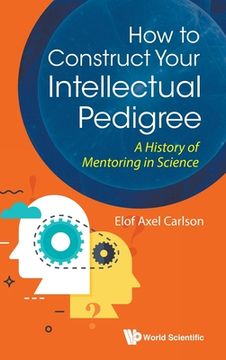How to Construct Your Intellectual Pedigree: A History of Mentoring in Science (in English)
Synopsis "How to Construct Your Intellectual Pedigree: A History of Mentoring in Science (in English)"
This is a handbook that shows the reader how to construct an intellectual pedigree. It is also a history of science monograph because the completed intellectual pedigrees can be used individually or collectively to trace the influences of mentoring in the life sciences. The author uses Hermann Joseph Muller (1890-1967) (which includes his own intellectual pedigree) to show how knowledge was shifted from Italy to Germany and England, to France, and then to the American Colonies. Through Muller, the author goes in two directions, one leading to Huxley, Darwin, and Newton. The second leads to Agassiz, Malpighi, Borelli, and Galileo. The author also shows, from comparing 60 additional intellectual pedigrees, that about one third go to Newton, one third to Galileo and the rest to other icons of the past (e.g., Linnaeus, Lavoisier, Gay-Loussac, Leibniz). It shows how small was the pool of available scientists in the universities before the mid-19th century.This book will stimulate graduate students and faculty to construct their own intellectual pedigrees. It will also be of interest to historians and philosophers of science. The book discusses the role of mentoring, dividing this into inputs of intellectual development as well as outputs of development, using timelines arranged as circles. For each mentor, a brief account is given of that person's work and relation to the subject of the pedigree.

